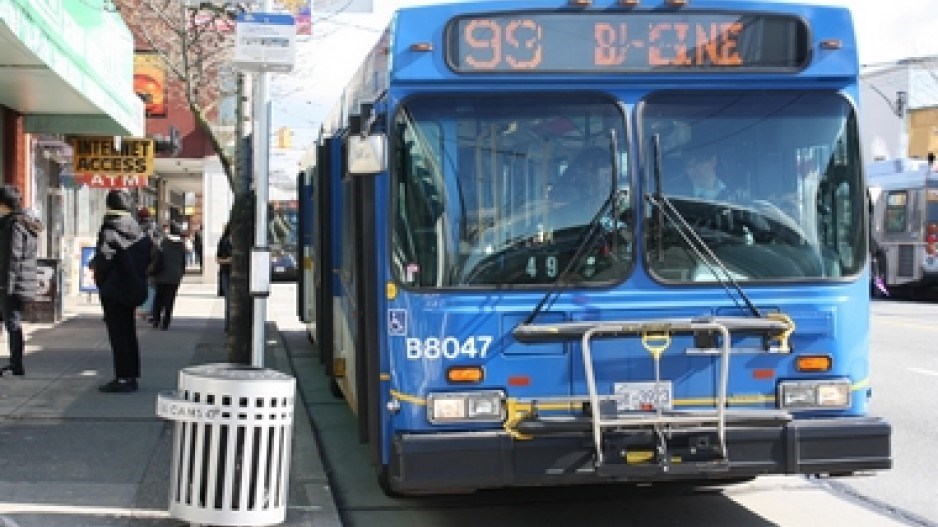By the time you read this, the provincial cabinet will have determined the wording of the question for the spring transit and transportation funding mail-in referendum. Full disclosure: I’m helping organize the Yes coalition.
What most needs to be sorted out at this point is the one topic opponents are exclusively focused on: why give more money to TransLink when its flaws turn people off? It’s under attack for the CEO’s pay level, recent breakdowns, a failure to implement the Compass Card program as promised, and lack of accountability.
I can agree: the Compass Card rollout should have been smoother and sooner.
Breakdowns? Let’s keep some perspective. In 30 years of operating an aging transit system, there have been a mere handful of breakdowns on the scale of the two SkyTrain shutdowns last summer. Overall in 2013 SkyTrain delivered 95% on-time performance. Congestion-causing delays occur almost every hour every day on major highways and bridges – there’s a radio industry built around reporting them – but no one has ever rallied tapped-out taxpayers to tar and feather the minister of transportation because of them. Look at the CEO’s outrageous salary, shout anti-TransLink critics. It’s $468,000, up 7% in 2013 (they don’t mention it will go down this year). They point out that it’s more than transit CEOs in Seattle, Portland, Toronto or Montreal make, but they rarely mention that it’s less than CEO salaries at the Vancouver Airport Authority, BC Hydro and BC Ferries and just over half of Port Metro Vancouver’s CEO’s $857,000 pay.
The vein-bulging outrage at TransLink’s CEO’s pay overlooks three key points. First, executive salaries weren’t mentioned as an issue in the latest independent audit of TransLink. Second, TransLink is almost alone in North America – and the envy of regions around the world – for the range of its responsibilities, which include financing, planning, operating and maintaining roads, bridges, buses, trains, light rail and cycling infrastructure. That makes comparisons difficult. But most important, TransLink is a political eunuch, with no one person responsible for defending it from the cloud of accusations coming at it from the provincial government, the public, the Mayors’ Council, anti-tax zealots and its customers because of the unaccountable governance structure forced on it by the provincial government.
No amount of money could hang onto the last two CEOs because of this.
TransLink’s biggest fault is its inability to get the message out about its almost unknown performance successes:
•A mode shift – out of cars into transit, walking and cycling – that is unmatched in North America. The number of trips by transit is up 80% since 2000.
•By far the highest per capita transit use among other cities our size in North America – three times more than Portland, the next highest city.
•The third-highest per capita transit use in North America, after only New York and Toronto.
•The lowest-operating-cost light rail network in the world, more than covering operating expenses from fare box revenues.
•The Canada Line built on time and on budget and beating revenue targets – projected to have 100,000 daily riders by 2013 but hitting 120,000 by 2011.
•An overall 7.4 out of 10 customer satisfaction rating in the last quarter.
Focusing on a few faults while ignoring these performance results is like berating someone who consistently wins the biggest races on the continent because they have dirty shorts.
For $0.34 a day per household, we can add to this success, or we can fixate on a few faults and plunge this region into a decade of congestion, pollution, increasing road deaths and injuries, declining public health and vastly higher public spending to accommodate more cars.
You’ll get to decide.
Correction: Dr. Carolyn Gotay, the Canadian Cancer Society chair in cancer primary prevention, was misidentified as Dr. Barbara Gotay in Peter Ladner’s previous column.
Peter Ladner ([email protected]) is a co-founder of Business in Vancouver.




